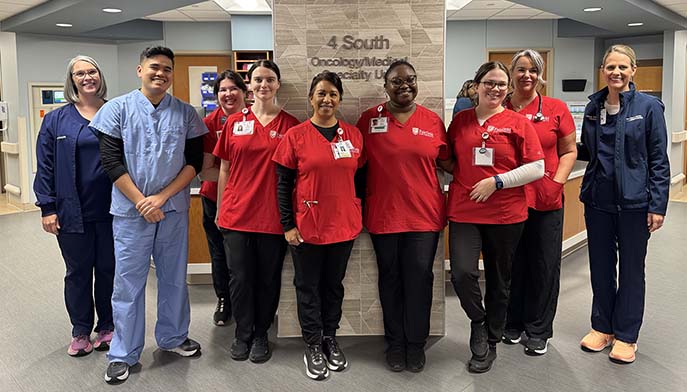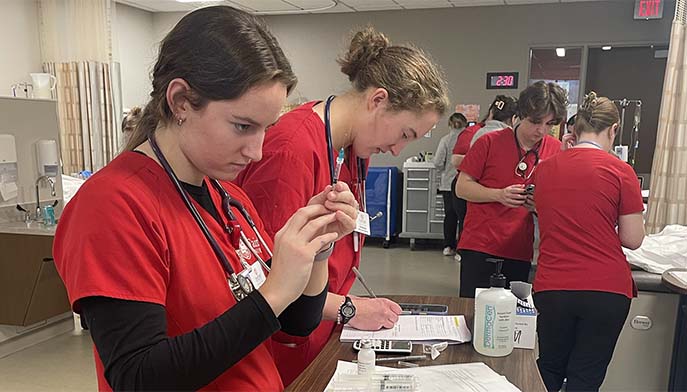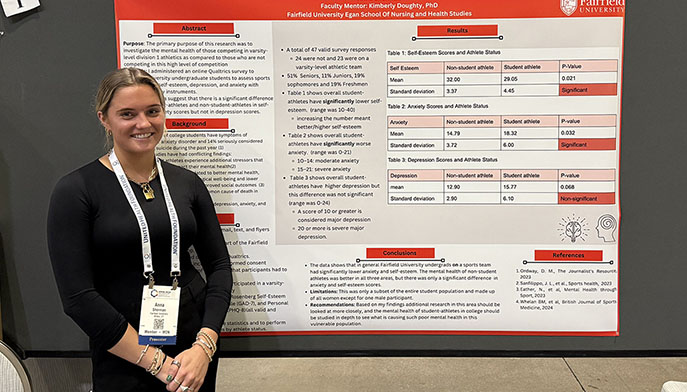Foundational skills plus a well-rounded practicum experience ready Fairfield Egan’s psychiatric mental health nurse practitioners for career success.
As she describes it, a “winding road” led Maggie Sullivan DNP’23 to Fairfield’s Psychiatric Mental Health Nurse Practitioner (PMHNP) program.
“I studied neuroscience and worked for several years in cancer research, and came to realize that nursing was the heart and soul of the healthcare field,” she said. That realization led to her BSN, and the conviction that she wanted to focus on the mental health of children and young adults.
Now, armed with her DNP, Dr. Sullivan has had a chance to reflect back on her experience in the program, including her 600 hours of practicum experience.
“The work we do is very interdisciplinary. You’re not just working with the patient, but with the whole family, plus teachers and other healthcare providers,” she explained. “Working in this role is an opportunity to touch people’s lives in some of their darkest moments.”
That challenge is the reason that Fairfield’s multi-pronged practicum experience is so vital.
“The PMHNP program is one of the oldest in the state, and it’s very holistic,” said program director Karen Corcoran DNP’14. “We want students prepared to conceptualize cases in terms of family, attachment theory, allostatic load [i.e., stressors], and societal and behavioral determinants of health. They learn to use self-reflection to evaluate and inform patient care.” Students might work through a case that involves past trauma, race-based issues, high-risk behaviors, or violence, for example. Their clinical sites include outpatient clinics, shelters, prisons, and in-patient settings.
After mastering foundational courses in the first two years of the program, students put that knowledge to work in simulation practice with a person trained to act as a patient in a given scenario. In these scenarios, students practice therapeutic techniques, motivational interviewing, and de-escalation techniques. They design an individual treatment plan for the patient. Their work is observed and feedback is provided by fellow students and professors.
“As a student, it’s daunting to be observed by your peers and professors, but their feedback helped me understand how to navigate difficult conversations, handle agitated clients and respond to tricky situations like being asked for more medications,” said Dr. Sullivan. “And being able to come together as a team after and really discuss the best treatment plan for a client was very helpful.”
Students also have a full day of collaborative simulation experience with those in the Family Nurse Practitioner program. “They do multiple simulations, during which they notice a medical issue,” said Dr. Corcoran. “They learn the principles of integrated care delivery, practice telehealth skills, create a treatment plan, and practice a formal handoff.”




